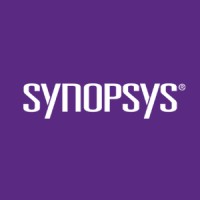
AltaReturn
Strong
AltaReturn is now Allvue Systems. Follow us: https://www.linkedin.com/company/allvuesystems/



Strong
AltaReturn is now Allvue Systems. Follow us: https://www.linkedin.com/company/allvuesystems/

Excellent
Catalyzing the era of pervasive intelligence, Synopsys delivers trusted and comprehensive silicon to systems design solutions, from electronic design automation to silicon IP and system verification and validation. We partner closely with semiconductor and systems customers across a wide range of industries to maximize their R&D capability and productivity, powering innovation today that ignites the ingenuity of tomorrow.
Security & Compliance Standards Overview
No incidents recorded for AltaReturn in 2025.
No incidents recorded for Synopsys Inc in 2025.
AltaReturn cyber incidents detection timeline including parent company and subsidiaries
Synopsys Inc cyber incidents detection timeline including parent company and subsidiaries
Last 3 Security & Risk Events by Company
Improper Neutralization of Special Elements used in an SQL Command ('SQL Injection') vulnerability in The Wikimedia Foundation MediaWiki Cargo extension allows SQL Injection.This issue affects MediaWiki Cargo extension: 1.39, 1.43, 1.44.
Improper Neutralization of Input During Web Page Generation (XSS or 'Cross-site Scripting') vulnerability in The Wikimedia Foundation MediaWiki QuizGame extension allows Stored XSS.This issue affects MediaWiki QuizGame extension: 1.39, 1.43, 1.44.
Improper Neutralization of Input During Web Page Generation (XSS or 'Cross-site Scripting') vulnerability in The Wikimedia Foundation MediaWiki PollNY extension allows Stored XSS.This issue affects MediaWiki PollNY extension: 1.39, 1.43, 1.44.
Improper Neutralization of Input During Web Page Generation (XSS or 'Cross-site Scripting') vulnerability in The Wikimedia Foundation MediaWiki WebAuthn extension allows Stored XSS.This issue affects MediaWiki WebAuthn extension: 1.39, 1.43, 1.44.
pyquokka is a framework for making data lakes work for time series. In versions 0.3.1 and prior, the FlightServer class directly uses pickle.loads() to deserialize action bodies received from Flight clients without any sanitization or validation in the do_action() method. The vulnerable code is located in pyquokka/flight.py at line 283 where arbitrary data from Flight clients is directly passed to pickle.loads(). When FlightServer is configured to listen on 0.0.0.0, this allows attackers across the entire network to perform arbitrary remote code execution by sending malicious pickled payloads through the set_configs action. Additional vulnerability points exist in the cache_garbage_collect, do_put, and do_get functions where pickle.loads is used to deserialize untrusted remote data.